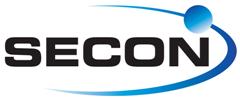Keynote
The Keynote Speaker for SECON is Prof. David Culler
Reuniting Wireless Sensor Networks with the IP Architecture
David E. Culler
University of California, Berkeley
A decade ago as wireless sensor network research took off, leaders in the field eschewed the use of IP as inadequate and in contradiction to the needs of wireless sensor networking. Since then the field has matured, standard links have emerged, and IP has evolved. Indeed, by elevating the abstraction, reducing contraints on addressing, introducing delegation, and providing a systematic framework for options, IPv6 enables optimizations that are required to meet the tight resource constraints of low-power embedded devices. Its emphasis on autoconfiguration is in concert with the need to unattended operation of vast embedded networks. We explore how how the strict architectural focus of IP combined with a set of key design principles provides a stronger WSN foundation both for research and for production.
Speaker's Biography
David Culler is a Professor of Computer Science at the University of California, Berkeley and CTO of Arch Rock Corporation. Professor Culler received his B.A. from U.C. Berkeley in 1980, and M.S. and Ph.D. from MIT in 1985 and 1989. He has been on the faculty at Berkeley since 1989, where he holds the Howard Friesen Chair. He is recipient of the ACM Sigmobile Outstanding Achievement Award, a member of the U.S. National Academy of Engineering, an ACM Fellow, an IEEE Fellow and was selected in Scientific American's 'Top 50 Researchers' and in Technology Review's '10 Technologies that Will Change the World'. He received the NSF Presidential Young Investigators award in 1990 and the NSF Presidential Faculty Fellowship in 1992. He was the Principal Investigator of the DARPA Network Embedded Systems Technology project that created the open platform for wireless sensor networks based on TinyOS, and was the founding Director of Intel Research, Berkeley. He has done seminal work on networks of small, embedded wireless devices, planetary-scale internet services, parallel computer architecture, parallel programming languages, and high performance communication, and including TinyOS, PlanetLab, Networks of Workstations (NOW), and Active Messages. He has served on Technical Advisory Boards for several companies, including Inktomi, ExpertCity (now CITRIX on-line), and DoCoMo USA. He co-authored the leading textbook on Parallel Computer Architecture and over 150 research publications. He serves on numerous program committees, editorial boards, and government panels.


